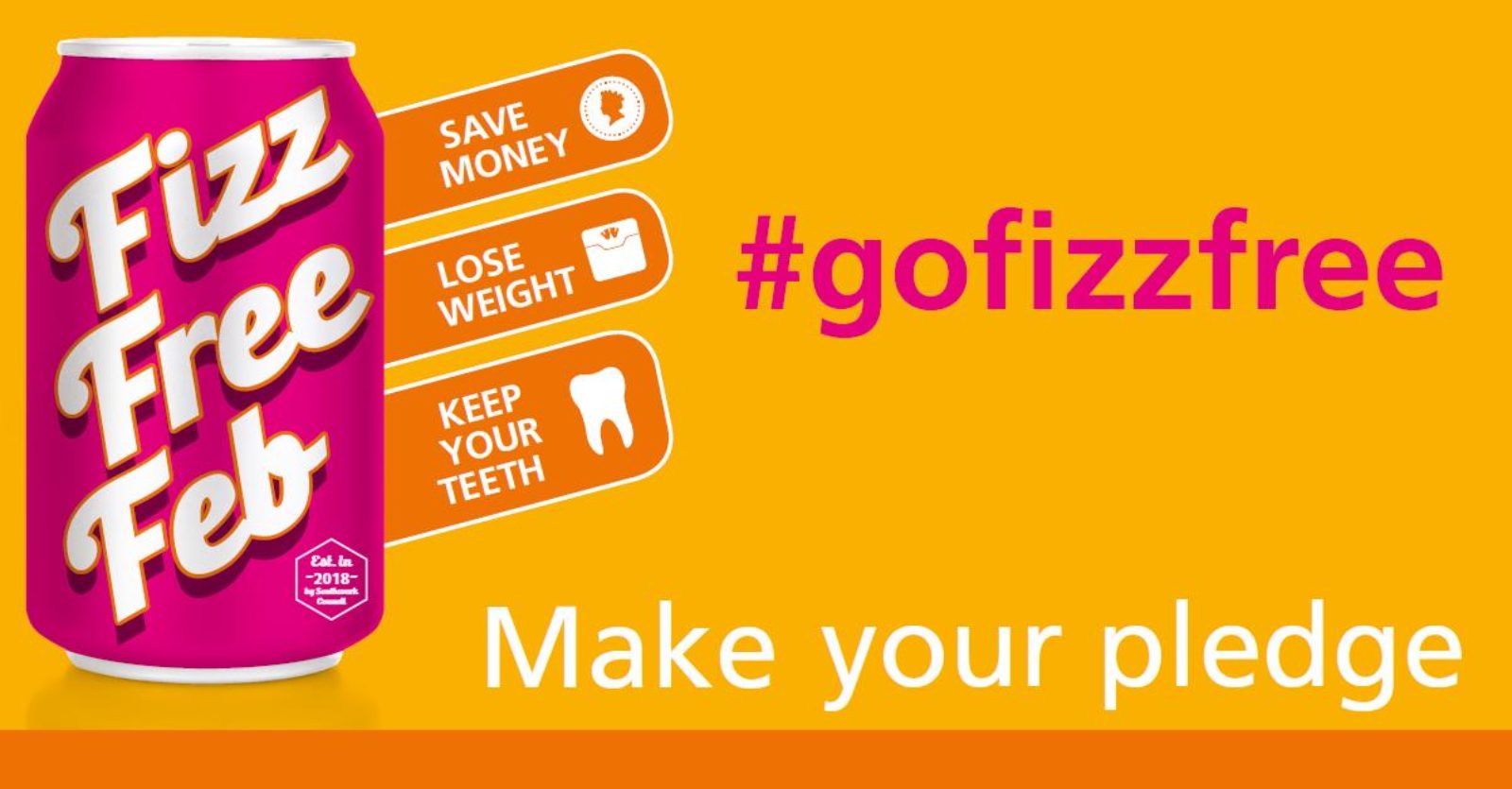Luke Pollard MP Member of Parliament for Plymouth Sutton and Devonport
Fizz Free FAQs

How do I take part in Fizz Free February?
To join in, just pledge to give up fizzy drinks for 28-days and tweet us using #gofizzfree. You can also let us know you’re taking part by signing up on our website where you can also fill out a short survey telling us about your fizzy drink habits.
Why should I stop drinking fizzy drinks in February?
Fizzy drinks are the largest single source of sugar for children aged 11-18, and they provide an average of 29% of daily sugar intake. Cutting out fizzy drinks is an easy way to reduce your sugar intake. By committing to going fizz free for the entire month of February it will make easier to cut down on fizzy drinks for the rest of the year.
Why is sugar bad for my health?
Excess sugar leads to development of unhealthy fat and weight gain, which in turn increases the risk of heart disease, type 2 diabetes, stroke, some cancers, and tooth decay.
What does ‘added sugar’ mean?
Added sugar refers to the sugars that have been added to food and drink to sweeten it. This added sugar has no nutritional value and only adds empty calories to a drink or meal. Added sugar also includes honey, syrups and fruit juice nectars.
How much sugar should I have?
Sugar should not exceed 5% of total dietary energy. This means the maximum daily amount of added sugar are:
4 – 6 years 5 sugar cubes 19 grams
7 – 10 years 6 sugar cubes 24 grams
11+ years 7 sugar cubes 30 grams
How can I cut down the amount of sugar I have in other areas of my diet?
The easiest way to cut down the amount of sugar you have in your diet is through simple swaps: change fizzy drinks to water, opt for lower fat milks, and choose sugar-free or no added sugary drinks. For more tips on how to make smart swaps be sure to download the free Change4Life App.
What food and drink items are more likely to have high amounts of sugar?
Kids in particular are getting a lot of their sugar from fizzy drinks, fruit juice, table sugar, biscuits, buns, cakes, pastries, puddings, breakfast cereals, sweets, chocolate and ice cream.
Do young people really consume too much sugar?
Currently young people in England consume almost 3 times the recommended amount of sugar. In Southwark almost one third of primary and secondary school pupils reported having sweets or non-diet fizzy drinks on most days.
Aside from improving my own health, are there any other benefits to cutting down sugar?
If everyone in England halves the maximum intake of sugar, in five year we could save the NHS £500m every year. Because sugar increases the risk of poor health, reducing sugar would reduce the risk of complicated and expensive health treatments and it is predicted that would prevent 4,000 early deaths and over 200,000 cases of tooth decay each year.
What can I do to encourage my school / community to consume less sugar?
Challenge your school or local community to #gofizzfree! You can also encourage your friends and family to download the Change4Life app and their other resources direct form their website. Don’t forget to share all the information on how sugar and fizzy drinks affect your health!
Is Luke doing Fizz Free February?
Yes. Luke is a big fan of Fanta but he is giving up fizzy drinks for February to show that swapping fizzy sugary drinks for non-fizzy drinks is a good way to save money, fight obesity and protect teeth.
